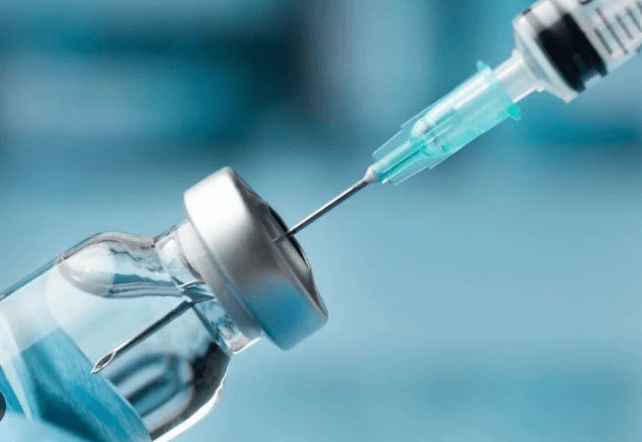Most of us have heard of the weight loss drug, Ozempic (Semaglutide) taking the world (and more specifically, Hollywood) by storm. But did you know Ozempic is a peptide? It is biochemically very similar to a natural peptide found in the human gut.

Other examples of peptides that are being used in therapeutic and clinical care and have shown very positive results include ipamorelin, tesamorelin, kisspeptin, GHK-Cu, BPC-157, Hexarelin, CJC-1295, Thymosin Alpha-1 and PT-141.
But what are peptides? What is peptide therapy? And what are the risks and benefits associated with peptide therapy?
Understanding Peptides
Peptides are small, naturally occurring molecules composed of amino acids arranged in a precise sequence. This sequence determines their functions within our bodies. Due to their compact size and specific structure, peptides can bind to various cellular receptors and influence pathways that regulate bodily processes. This interaction ultimately impacts how our bodies function and respond to biological signals. That is pretty revolutionary in the world of modern medicine.
Challenges And Considerations
Despite there being more than 400 peptide drugs currently under clinical development worldwide, with over 60 already approved for clinical use in multiple countries and regions, including the United States, Europe, and Japan, peptide therapy, despite its promising potential, faces several challenges.
For example, in the UK, the use of peptides for research purposes is legal. However, it is important to ensure that the research is conducted in accordance with applicable peptide UK regulations and ethical guidelines.
In contrast, in Australia, peptides are restricted to legitimate medical purposes as prescribed by a doctor or specialist, including synthetic drugs that increase growth hormone levels (known as growth hormone secretagogues).
Various countries have different regulations concerning peptide therapy, but typically, countries with advanced medical systems and regulatory frameworks for pharmaceuticals are likely to have guidelines governing peptide therapies.
Clinical Evidence And Research
In the UK, Healand Clinic is currently partnering with Koniver Wellness, a market leader in innovative therapies that has pioneered the combined use of peptides to achieve desirable clinical outcomes.
With research into peptide therapy expanding dramatically, particularly studies focusing on elucidating specific peptide mechanisms and evaluating their clinical efficacy, the future of peptide therapy looks bright.
Clinical trials are underway to assess the safety and effectiveness of peptide therapies across various medical conditions. For example, peptides targeting insulin pathways are being investigated to improve glycemic control in diabetes patients.
As the evidence base for peptide therapy continues to evolve, with promising results in areas such as pain management, cardiovascular health, and neurological disorders, ongoing research aims to uncover new peptide candidates and optimise delivery methods to enhance therapeutic outcomes.
That is incredibly exciting!
Current Applications Of Peptide Therapy Today
The versatility of peptides lends itself to a wide range of medical applications:
Anti-Ageing And Aesthetic Enhancement
Peptides like collagen-stimulating peptides are used in cosmetic formulations to reduce wrinkles, improve skin elasticity, and promote a youthful appearance.
Muscle Building And Performance Enhancement
Peptides such as growth hormone-releasing peptides (GHRPs) are used by athletes and fitness enthusiasts to enhance muscle growth, improve recovery times, and increase endurance.
Metabolic Support
Peptides can aid in weight management by influencing metabolism and appetite regulation. Some peptides are being researched for their potential to treat obesity and metabolic syndrome.
Chronic Disease Management
Peptide therapies are explored for their potential in managing chronic diseases like diabetes, cardiovascular disorders, and autoimmune conditions. They offer targeted approaches with potentially fewer side effects compared to conventional treatments.
Wound Healing
Peptides that promote tissue repair are used in wound care products to accelerate healing, reduce infection risk, and improve outcomes for patients with acute and chronic wounds.
Mechanisms Of Peptide Therapy
Peptide therapy involves the administration of specific peptides to achieve therapeutic effects. These peptides can mimic natural peptides found in the body or be designed to target specific cellular processes. The mechanisms of action vary widely depending on the peptide used but often involve:
- Hormonal Regulation: Some peptides act as hormone regulators, influencing the secretion of hormones such as growth hormone or insulin. For example, peptide therapies targeting growth hormone secretion are used in conditions like growth hormone deficiency.
- Cellular Repair: Certain peptides promote tissue repair and regeneration by stimulating collagen synthesis or enhancing cellular turnover. This property makes them valuable in treating injuries, wounds, and promoting skin rejuvenation.
- Neurological Effects: Peptides can influence neurotransmitter activity and neuroprotective pathways, potentially offering therapeutic benefits in neurological disorders such as Alzheimer’s disease or Parkinson’s disease.
- Immune Modulation: Peptides can modulate immune responses, either by enhancing immune function or suppressing autoimmune reactions. This property is crucial in conditions where immune dysregulation plays a role.
Future Directions
The future of peptide therapy holds promise for personalised medicine approaches, where peptides could be tailored to individual genetic profiles and specific medical needs.
Advances in peptide synthesis, delivery systems, and understanding of peptide-receptor interactions are likely to expand the therapeutic potential of peptides in the coming years.
Final Thoughts
Peptide therapy represents a revolutionary approach in modern medicine, harnessing the body’s natural signalling molecules to target diseases and enhance physiological processes.
From anti-ageing treatments to chronic disease management, peptides offer diverse therapeutic applications with potential benefits across various medical specialties. As research progresses and clinical evidence accumulates, peptide therapy is poised to play an increasingly significant role in shaping the future of healthcare, offering new hope for patients seeking effective, targeted treatments.
While peptide therapy is still evolving, its potential to revolutionise treatment paradigms underscores its importance in the ongoing pursuit of improved health outcomes and enhanced quality of life.



